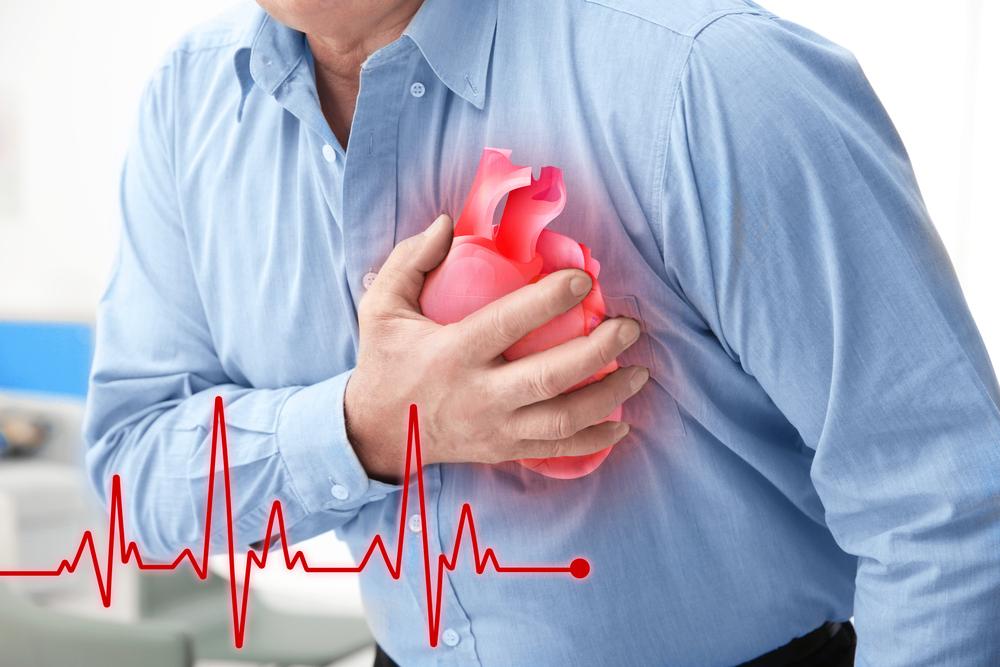Fast heart beat is the most feared thing for high blood pressure, which can cause sudden death! The three types of drugs that are the first choice for lowering heart rate, teach you how to use them correctly
Nowadays, as a common chronic disease, the incidence of hypertension is increasing. For the treatment of hypertension, patients usually focus most of their energy on measuring blood pressure, adjusting antihypertensive drugs, and controlling diet . . Many patients believe that as long as blood pressure is control within the normal range, there is no need to worry about other problems. But in fact, changes in heart beat are closely related to the progression of hypertension and the risk of cardiovascular events .
1. The importance of heart rate
Heart rate refers to the number of times the heart beats per minute. The normal heart rate range for adults is generally 60-100 beats per minute. For patients with hypertension, a faster heart rate may mean an increased burden on the cardiovascular system.
First, a faster heart rate will increase the heart’s oxygen consumption. When the heart beats too fast, in order to meet the body’s blood supply needs, the heart needs to work harder, which will increase the heart’s oxygen consumption. If the heart is in a fast heart beat state for a long time, the heart is prone to fatigue, which may cause cardiovascular diseases such as myocardial ischemia and angina pectoris.
Secondly, increased heart beat is closely related to increased blood pressure. Studies have shown that for every 10 beats/minute increase in heart rate, blood pressure may increase by 8-10 mmHg. This is because increased heart rate leads to increased cardiac output, which increases peripheral blood vessel pressure. Therefore, controlling heart rate can not only reduce the burden on the heart for patients with hypertension, but also help lower blood pressure.

In addition, heart rate is also one of the important indicators for assessing the risk of cardiovascular disease. Many clinical studies have found that hypertensive patients with a fast heart rate have a significantly higher risk of cardiovascular events (such as myocardial infarction, stroke, etc.) than those with a normal heart beat.
2. What are the drugs for controlling heart beat?
For this reason, for patients with hypertension, controlling heart beat to meet the standard is also the key to preventing cardiovascular complications. Moreover, the heart beat of patients with hypertension has higher requirements, at least to be reduce to below 75 beats/minute, and preferably to be control below 60 beats/minute. As for how to control heart beat, the simplest and most effective way is drug treatment. Currently, the commonly used drugs for controlling heart rate in clinical practice are mainly the following categories.
1. β-blockers
This type of drug mainly blocks the heart’s β-receptors, slows down the heart beat, reduces myocardial contractility, and thus reduces the heart’s oxygen consumption. Common β-blockers include metoprolol , bisoprolol, atenolol, etc.
2. Non-dihydropyridine calcium channel blockers
This type of drug mainly blocks the calcium channels of myocardial cells and vascular smooth muscle cells, slowing down the heart beat, reducing myocardial contractility, and dilating blood vessels. Common non-dihydropyridine calcium channel blockers include verapamil and diltiazem.
3. Ivabradine
This is a new type of heart beat control drug that slows down the heart rate by selectively inhibiting the pacemaker current of the sinoatrial node. Ivabradine is mainly suitable for patients who are contraindicate or intolerant of beta-blockers, as well as patients with heart failure whose heart rate is poorly control.

For patients with hypertension, the first choice of heart rate lowering drugs is beta-blockers, and metoprolol is commonly used, because this type of drug can not only lower heart beat, but also lower blood pressure. It can be said that one drug has multiple uses, especially for patients with hypertension with a fast heart beat. Speaking of this, some patients may also have questions. After taking metoprolol, the heart rate has returned to normal. Can I stop taking the drug? Or should I continue to take it for a long time?
3. Do I need to continue taking medicine to control my heart rate, or can I stop taking it once my heart rate returns to normal?
Whether patients with hypertension can stop taking heart rate control drugs depends on the specific situation.
1. If the patient’s heart rate is only temporarily elevate, such as when the patient is emotionally agitated or exercising vigorously, then the heart rate may return to normal after the cause is remove. In this case, long-term use of heart rate control medication is generally not necessary.
2. If the heart rate of a hypertensive patient continues to be higher than the normal range and lifestyle interventions (such as proper exercise, weight loss, avoiding mental stress, etc.) still cannot effectively lower the heart rate, then long-term use of heart rate control drugs is required.
This is because an increased heart rate is often a persistent pathological state that is difficult to completely correct simply by lifestyle intervention. Moreover, a long-term increased heart rate will cause persistent damage to the heart and blood vessels, thereby increasing the risk of cardiovascular events. Therefore, for such patients, heart rate control drugs usually need to be take for a long time to maintain the heart rate within the normal range.
3. For patients with special conditions, such as hypertensive patients with coronary heart disease, heart failure and other cardiovascular diseases, heart rate control drugs may need to be take more strictly and for a long time. This is because the heart function of these patients has been damage, and the accelerated heart rate will further increase the burden on the heart and increase the risk of worsening of the disease. For example, for patients with coronary heart disease, controlling the heart rate at 55-60 beats/minute can reduce myocardial oxygen consumption and reduce the onset of angina pectoris; for patients with heart failure, controlling the heart rate below 70 beats/minute can improve heart function and improve the quality of life.
4. If the purpose of taking metoprolol for patients with hypertension is not only to lower heart rate, but also to use it as a blood pressure medicine, then it cannot be discontinue without authorization, otherwise it may cause a rebound increase in blood pressure and heart rate, which is dangerous. In addition, it must be note that metoprolol cannot be discontinue suddenly, but a gradual process, which can be discontinue gradually over a week.
In short, in clinical practice, doctors usually develop individualized treatment plans based on the patient’s specific conditions, taking into account blood pressure, heart rate, cardiovascular disease risk factors and other factors. At the same time, doctors will closely monitor changes in the patient’s condition and adjust the dosage or type of medication in a timely manner based on the control of heart rate.



Pingback: What are the symptoms of whooping cough? Can whooping cough in children be cured?
Pingback: Does Ativan Lower Blood Pressure? A Detailed Look at Its Effects
Pingback: What Is K 56 Pink Pill? Uses, Effects, and Side Effects Explained
Pingback: Ceporex Uses, Benefits, Side Effects & Safety Guide
Pingback: Understanding Adjustment Disorder with Anxiety ICD 10
Pingback: Levophed: 7 Powerful Benefits & Safe Dose You Must Know - Health Page